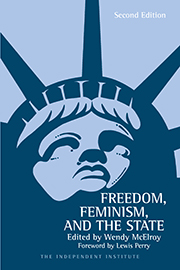Senate Resolution 453 is “a resolution condemning the death sentence against Meriam Yahia Ibrahim Ishag, a Sudanese Christian woman accused of apostasy.” On June 3, the measure passed the Senate unanimously, and it is now before the House (H.R. 601). It is an ill-considered bill that could cause damage. The Sudanese appeal process is far from exhausted, and politicizing Ibrahim’s brutal sentence could easily backfire against her. It could also strengthen the notoriously corrupt President Omar al-Bashir.
A Sudanese court sentenced the 27-year-old to death on May 15 for allegedly converting from Islam to Christianity (apostasy). She was also convicted of adultery because her marriage to an American citizen and Christian, Daniel Wani, is not recognized except as a criminal act in Sudan. Ibrahim is currently imprisoned with her infant son and newborn daughter, whom she is allowed to nurse for two years before her sentence is carried out. An international outcry erupted. President Obama has been called upon to take action, as he did on the nearly 300 schoolgirls kidnapped in Nigeria. But, overall, the White House has been muted. In a brief press statement on May 15, State Department spokeswoman Marie Harf declared, “We are deeply disturbed over the sentencing. ... We understand that the court sentence can be appealed.”
Ibrahim’s two chances for freedom seem to be either a successful appeal or clemency extended by al-Bashir. Those who focus on legal grounds may be looking in the wrong direction. Mohamed Ghilan, an expert in Islamic jurisprudence, stated on Al Jazeera on May 17: “The punishment [of Ibrahim] has little to do with religion and serves as a political distraction.”
Death sentences for apostasy are rare, even in Sudan. Amnesty International UK admits it does not know “of anyone who has been executed for ’apostasy’ in Sudan since the 1991 Criminal Code was brought in.” Yet the code permits the death sentence for apostasy. Why now?
Al-Bashir is infamous for shady tactics, including misdirection. The Sudanese journalist Dallia Abdelmoniem suggested Ibrahim was “fodder” in “an elaborate game of political chess.” She commented in June 6’s Policymic, “All other matters — the failing economy, the rising inflation, the continuing bombings of civilians in the Nuba Mountains, the spiralling crises in Darfur, the student protests, etc. — have taken the back seat as many continue to discuss and dissect the case that undoubtedly will be dragged out.”
Abdelmoniem pointed to a specific incident that occurred shortly before Ibrahim was thrust into a spotlight. An April 26 headline in the news source Star Africa announced, “MPs to lift Khartoum governor’s impunity over corruption scandal.” The scandal involves using forged documents to transfer land worth billions, and mud is likely to splatter in al-Bashir’s direction. He intends to clamp down on his opponents. In May, for example, the opposition leader Sadiq al-Mahdi was arrested for allegedly insulting Sudan’s paramilitary forces in a speech.
Ibrahim’s inhuman treatment also deepens the schism between religious conservatives and those who are more secular; the latter are particularly hostile to al-Bashir. To the conservatives, al-Bashir can cast himself as “a defender of Islam” who withstands the West. Upon the more secular, he can impose harsher restraints.
Congress is condemning actions over which it has no control. It explicitly rejects “a restrictive interpretation” of Sharia law and reaches into the internal legal system of another nation. The West’s denunciation may well add to al-Bashir’s popularity, especially among conservatives and those Sudanese who resent foreign interference. No wonder al-Bashir’s administration “plays down” the case, in the words of Al Jazeera (May 17).
Al-Bashir has weathered sanctions and civil war while ignoring the West’s opinion of him. In 2009, he became the first sitting president indicted by the International Criminal Court (ICC) for directing mass killing, rape and pillage in Darfur. Again, the indictment may have raised his reputation in political circles that matter to him. The Arab League and the African Union rejected the ICC warrant. Egypt and Qatar refused to arrest al-Bashir when he visited.
The alternative is not to abandon Ibrahim but to pursue two already active channels: Religious leaders around the world are calling on al-Bashir to show compassion, and voices within Islam itself are denouncing the death sentence. These voices could discredit al-Bashir rather than add to his repute; they are the ones most likely to result in clemency. Watching al-Bashir ’graciously’ bestow compassion would be a bitter pill but, if Ibrahim’s freedom is the goal, it should be swallowed.









